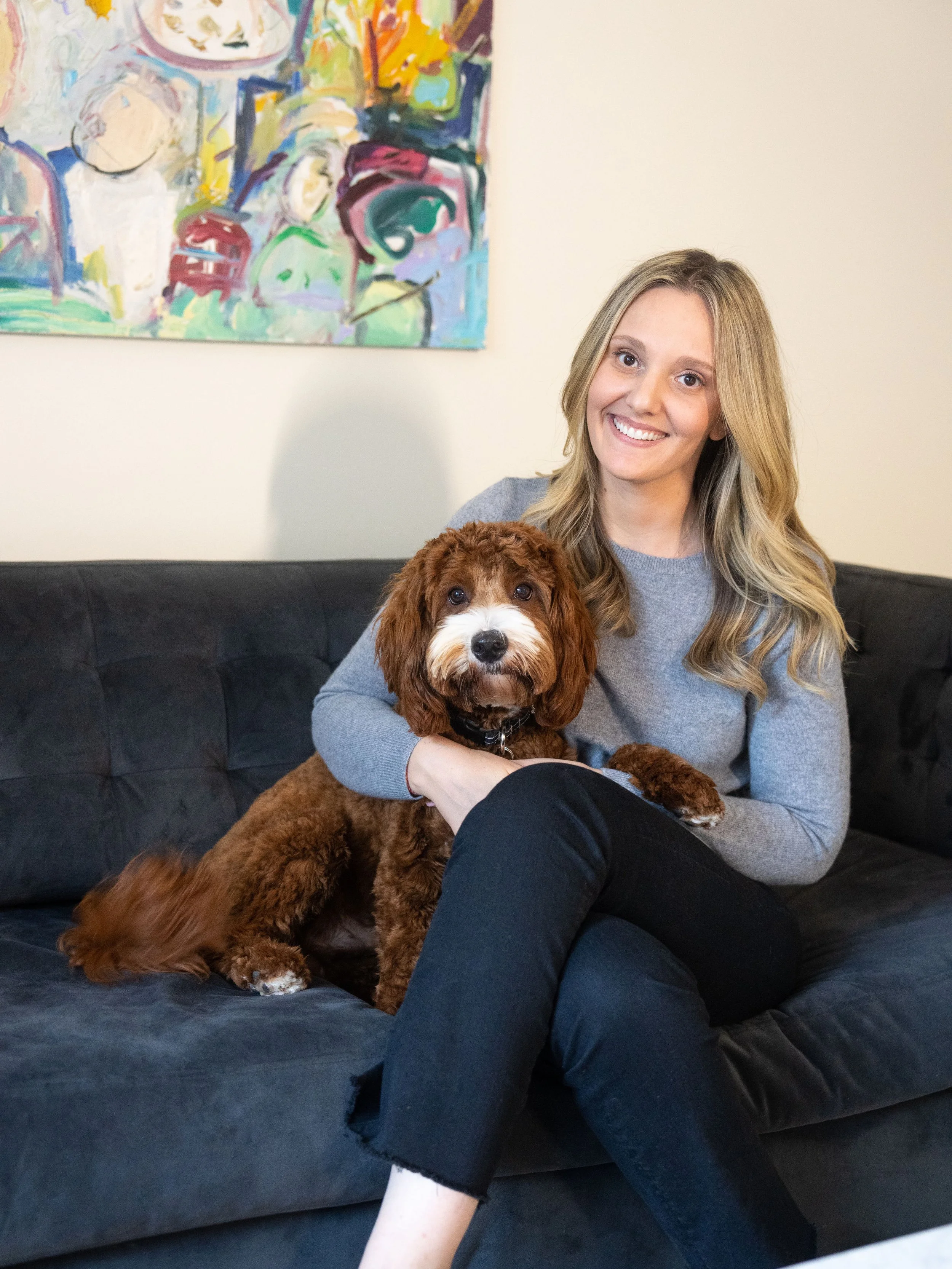Eating Disorder Therapy
Specialist Dr. Nicole Baum, PsyD.
New York • Massachusetts
I have over a decade of experience treating body image concerns and eating disorders, with specialized training at Cambridge Eating Disorder Center.
I understand how exhausting the shame, guilt, and comparison are.
You skip mirrors, dread social events, and find yourself scrolling through feeds that leave you comparing and spiraling. You’re burdened by guilt, asking “why do I still care?” and ashamed that “I can’t just accept where I am right now.”
The fatigue is real.
Their inner critic is on full blast
Body thoughts get in the way
Mirrors, photos, or social events feel hard to face
They’re burnt out by comparisons
Motivation is low, no matter what
Joy feels out of reach
They keep getting stuck in loops
Clients Come To Me When:
I get these cycles, because I’ve spent my career helping people who are overwhelmed by their minds.
“There’s no perfect time to start therapy.
If you’re here, now is the time.”
What percentage of your thoughts are about your body? If it feels like too much or it’s getting in the way of living fully, therapy can help.
Healing from an eating disorder requires a personalized and collaborative approach. We work together, side by side, because you’re not broken– you’re worn out
We build trust first—therapy should feel safe, collaborative, and transparent
Together we explore what’s driving the fatigue, shame, and self-punishment.
You’ll be equipped with tools, both for the moment and for the long haul.
You’ll learn to relate to yourself and others without comparison, to rest without guilt, and to show up more fully in your own life.
Techniques I Use In Eating Disorder Therapy
My approach is grounded in evidence-based techniques and specialized training in eating disorders.
Together, we’ll look at what’s underneath the struggle and what shows up in the moment. I take a biopsychosocial approach, meaning we consider the whole picture: you as a person, your relationships, your biology, and the world around you.
-
Shift the thoughts and behaviors that keep you stuck.
CBT helps you identify and challenge beliefs about food, body, or self-worth. We gently question the rules you’ve internalized, like “I should only eat ‘good’ foods,” or “I don’t deserve to eat unless I’ve earned it,” and replace them with balanced, supportive perspectives. The focus is on breaking free from unhelpful cycles and building patterns that support you instead.
-
Make room for hard thoughts without letting them run the show.
ACT helps you notice painful thoughts and feelings without fusing with them. Instead of getting pulled into the “my body is the problem” story or chasing perfection, you learn to hold space for discomfort while still choosing actions that align with your values. We focus on helping you live even when your mind wants to spiral.
-
Hold two truths at once: acceptance and change.
DBT gives you practical tools to manage emotional overwhelm, impulsive behaviors, and black‑and‑white thinking. In eating disorder work, it’s especially helpful for reducing self-punishment, improving distress tolerance, and building healthier coping skills. You learn to ride the wave of emotion instead
-
Understand the “why” behind the patterns.
This approach explores the roots: your early relationships, how your sense of self developed, and the emotional dynamics that often go unspoken. In eating disorder work, psychodynamic therapy helps uncover how food and body image can become linked with control, self-worth, safety, or identity. By bringing these patterns into awareness, therapy fosters insight and supports lasting change.
Eating Disorder Therapy With Results
After therapy, my clients report:
Enjoying dinners with friends without turning it into self-punishment
Finding space for rest and relaxation
Letting go of comparisons and self-criticism
Trusting their body’s cues instead of rigid rules
Feeling more at peace in their own skin
Having more energy to focus on what matters most
Changing what’s on your plate is just one piece. Changing how you see yourself, how you speak to yourself, and how you relate to your body. That’s where real healing happens.
Hi, I’m Dr. Nicole Baum
My therapy is designed specifically for eating disorder recovery- adapted to your needs, not assumptions.
Together, we’ll focus on healing your relationship with food and your body by building self-compassion, reducing shame, and breaking free from cycles of guilt, comparison, and self-punishment. My approach is grounded in trust, transparency, and a deep understanding of how exhausting this struggle can be.
We’ll explore what’s happening now, uncover the root causes, and develop practical tools to help you move forward. If you're tired of feeling stuck and ready for lasting change, I’d be honored to connect. Reach out to schedule a free consultation and take the first step toward healing.
Education, Credentials,
& Trainings
Doctorate in Clinical Psychology (PsyD), William James College (formerly the Massachusetts School of Professional Psychology)
Master’s in Psychology, William James College
Bachelor’s in Psychology, Clark University, magna cum laude
Post-doctoral Fellowship at the Cambridge Eating Disorder Center, specializing in body image and disordered eating
Clinical experience in inpatient, college counseling, community mental health, and outpatient psychotherapy settings (including UMass, Boston Institute for Psychotherapy, and others)
Licensed in New York and Massachusetts
Get Started
in 3 Steps
-
Fill out the contact form. You’ll always hear back from me. If I’m not the right fit, I’ll provide a thoughtful referral to someone who might be.
-
We’ll schedule a brief phone consultation to see if it feels like a good match. If it does, we’ll move forward with booking your first session.
-
In our first few sessions, we’ll get to know each other and begin building safety and trust. I’ll learn more about you and your world: your history, your nervous system, and how I can best support you. This is our time to discover how therapy can help you move forward.





